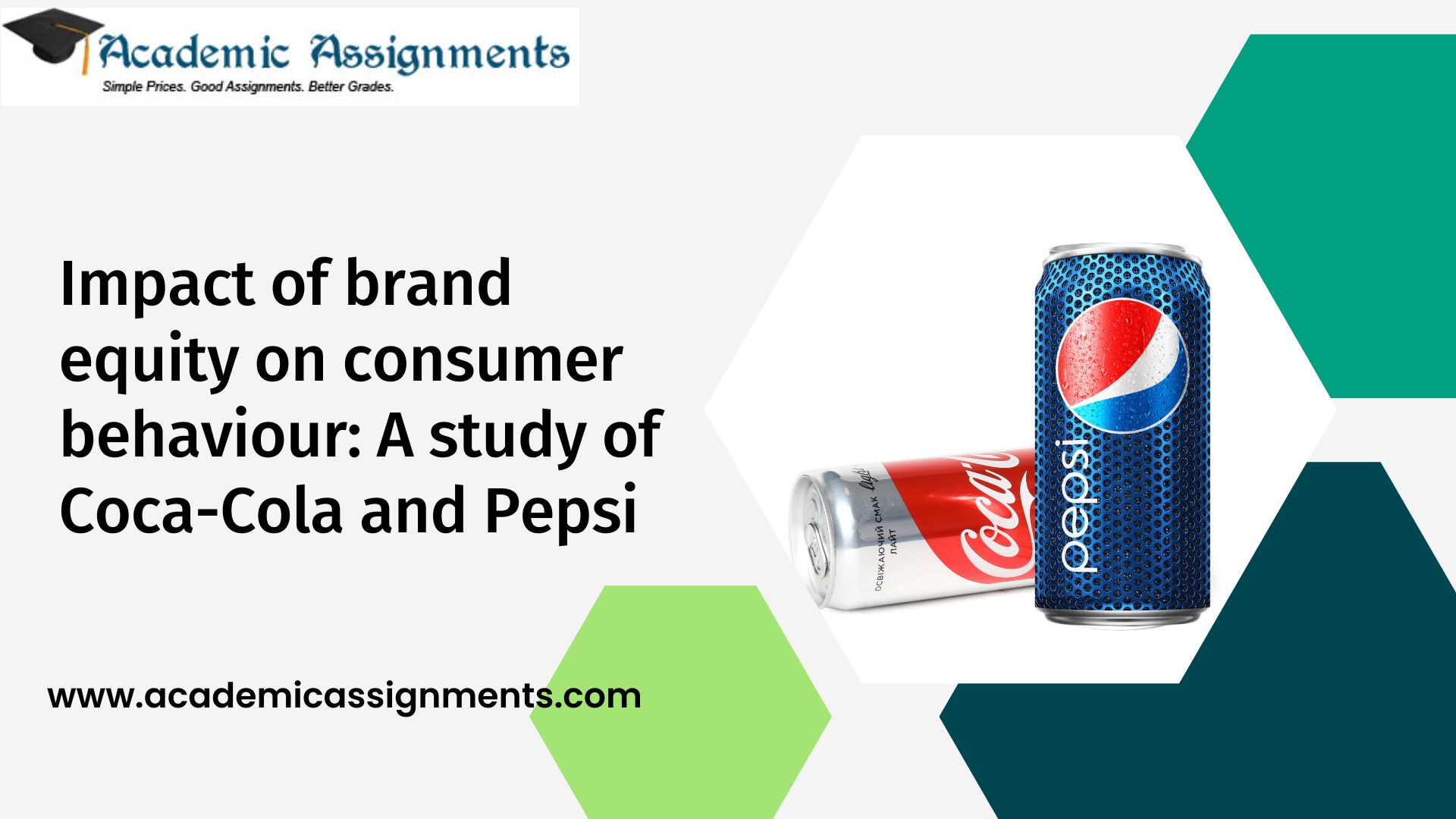The impact of brand equity on consumer behaviour: A study of Coca-Cola and Pepsi
Brand equity is a crucial factor that influences consumer behaviour. It refers to the value that a brand name holds in the minds of consumers. This value is built over time through consistent branding efforts, positive consumer experiences, and effective marketing strategies.
Coca-Cola and Pepsi are among the largest and most well-known brands in the global soft drink industry. They have been competing with each other for decades and have built strong brand equity over the years. In this article, we will examine the impact of brand equity on consumer behaviour by studying these two iconic brands.
Brand Awareness
Brand awareness is one of the most significant factors contributing to brand equity. It refers to the degree to which consumers recognise and recall a brand. Coca-Cola and Pepsi have achieved high brand awareness through their extensive marketing campaigns.
As an example, Coca-Cola’s marketing initiative “Share a Coke” encouraged customers to share a Coke with their loved ones, which resulted in a powerful emotional bond with the brand. In the same way, Pepsi’s “Live for Now” campaign was geared towards appealing to a younger demographic by linking the brand with thrilling and daring experiences.
As a result of these campaigns, both Coca-Cola and Pepsi have high brand awareness, which significantly impacts consumer behaviour. Customers tend to opt for brands they are acquainted with, indicating that enhanced brand recognition can result in a boost in sales.
Brand Loyalty
Brand loyalty is another important factor that contributes to brand equity. It refers to the degree to which consumers are willing to stick with a particular brand over time. Coca-Cola and Pepsi have built strong brand loyalty through consistent branding efforts and positive consumer experiences.
For instance, Coca-Cola has created a strong emotional connection with consumers through its branding efforts. The brand has been associated with happiness, joy, and togetherness, which has helped to create a sense of loyalty among consumers.
Similarly, Pepsi has built a loyal following by positioning itself as a daring, bold, and innovative brand. The brand’s advertising campaigns have targeted younger consumers looking for exciting experiences, which has helped create a sense of loyalty among this demographic.
The influence of brand loyalty on consumer behaviour is noteworthy. Customers who exhibit loyalty towards a brand are inclined to select that brand over its rivals, even if it implies shelling out a premium price. Hence, brand loyalty has the potential to result in elevated sales and profitability.
Brand Associations
Brand associations refer to the attributes and characteristics consumers associate with a brand. Coca-Cola and Pepsi have both built strong brand associations over the years.
Coca-Cola, for instance, has been associated with happiness, joy, and togetherness. The brand has created an emotional connection with consumers by positioning itself as one that brings people together.
On the other hand, Pepsi has been associated with excitement, adventure, and innovation. The brand has positioned itself as one that always pushes the boundaries and delivers new and exciting experiences.
Brand associations have a significant impact on consumer behaviour. Consumers are more likely to choose a brand with positive attributes and characteristics. This means that strong brand associations can translate into increased sales and profitability.
Brand Reputation
Brand reputation is another important factor that contributes to brand equity. It refers to the degree to which consumers perceive a brand positively or negatively. Coca-Cola and Pepsi have both built strong brand reputations over the years.
Coca-Cola, for instance, has been perceived as a trustworthy, reliable, and consistent brand. The brand has maintained a high level of quality and consistency over the years, which has helped build a strong reputation among consumers.
Similarly, Pepsi has been perceived as a brand that is innovative, daring, and exciting. The brand has stayed relevant by constantly introducing new products and marketing campaigns, which has helped build a positive reputation among consumers.
The reputation of a brand exerts a substantial influence on consumer behaviour. Customers are inclined to choose a brand that enjoys a favourable reputation as it instils in them a feeling of trust and assurance regarding the product. A strong brand reputation can translate into increased sales and profitability.
Conclusion
In conclusion, brand equity has a significant impact on consumer behaviour. Coca-Cola and Pepsi are among the most prominent global brands of non-alcoholic beverages, and they have established substantial brand value over time. Their extensive marketing campaigns, consistent branding efforts, and positive consumer experiences have helped to create high levels of brand awareness, loyalty, associations, and reputation.
Consumer behaviour is greatly influenced by these factors, as they increase the likelihood of consumers selecting a brand they are familiar with, have loyalty towards, perceive positively, and hold a favourable reputation. This means that brand equity is a crucial factor that can translate into increased sales and profitability.
As a business owner or marketer, it is essential to understand the impact of brand equity on consumer behaviour. By building strong brand equity, you can create a loyal following of consumers who will choose your brand over its competitors, even if it means paying a higher price.
About The Author:
Mark Edmonds is an adept academic writer who focuses on business-related subjects and is employed at Academic Assignments, a platform that offers MBA dissertation help to students. He has composed numerous pieces on topics such as brand management, marketing strategy, and consumer behaviour. Mark is enthusiastic about aiding students in reaching their academic objectives through the provision of exceptional university assignment help.

 Blogs
Blogs +44 207 5588165
+44 207 5588165

